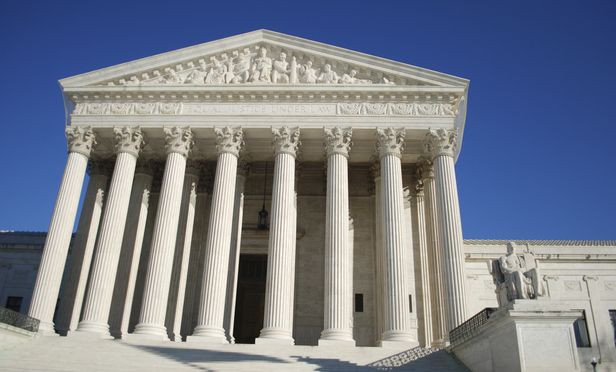The U.S. Supreme Court didn’t issue any new opinions on Monday, but it did deliver news to some of the many litigants trying to get on the court’s docket. Among the lucky ones was Omnicare Inc., whose lawyers at Winston & Strawn persuaded the justices to resolve a circuit split over what constitutes a false statement under federal securities laws. Another winner was Aereo Inc., the TV startup at the center of a groundbreaking copyright fight before the high court, which won a ruling that it won’t have to share the stage with rival FilmOn X during oral arguments in April.
Omnicare, which distributes pharmaceutical drugs to nursing homes, wrote in a December 2005 registration statement that its approaches to drug pricing were “legally and economically valid” and that they “bring value to the health care system.” Two months later, prosecutors began investigating whether Omnicare’s generic drug substitution policies violated the False Claims Act. Omnicare promptly disclosed the investigation in a regulatory filing. The plaintiffs firm now known as Robbins Geller Rudman & Dowd brought a shareholder class action, alleging that Omnicare concealed that its practices were illegal. The plaintiffs alleged violations of Section 11 of the Securities Act of 1933, which makes issuers of registration statements liable for misstatements. That section is popular among plaintiffs because it doesn’t require a showing of scienter, or intent to defraud.



